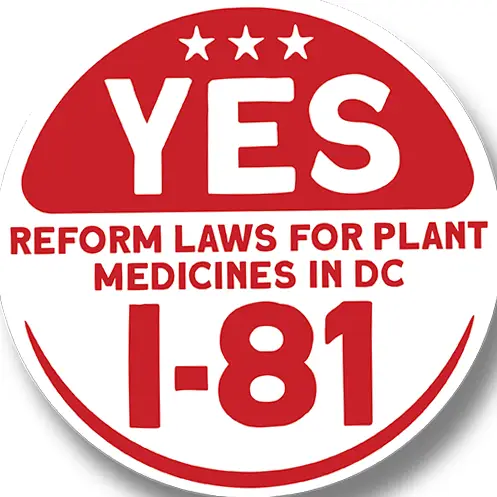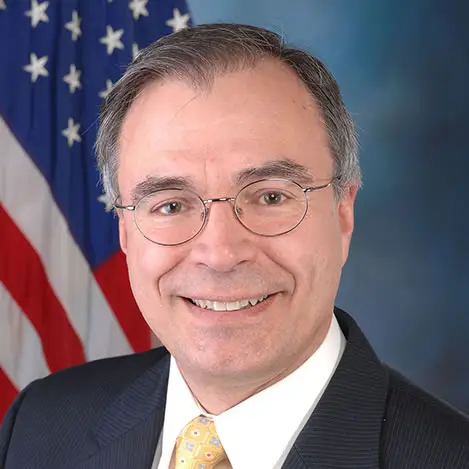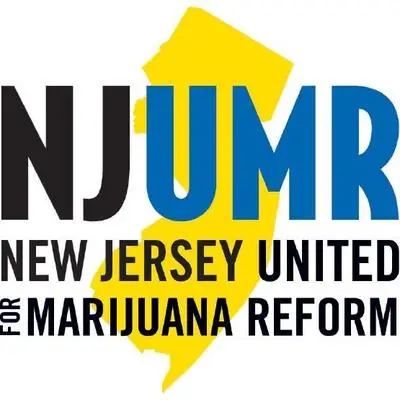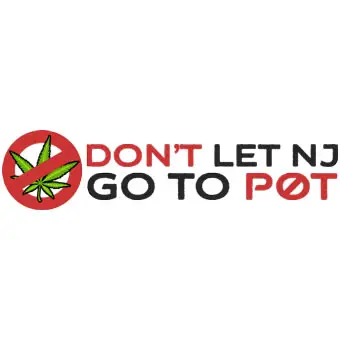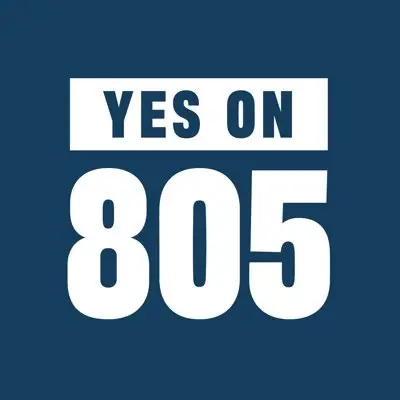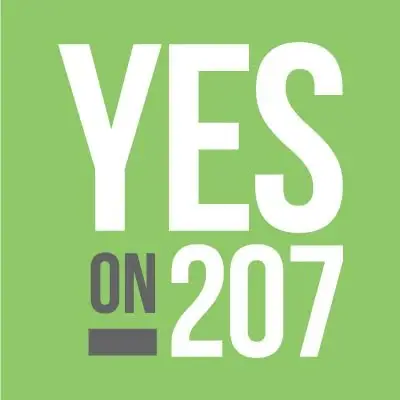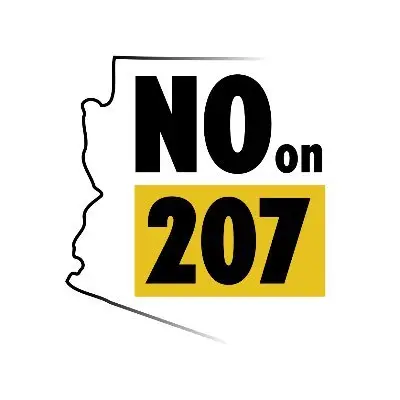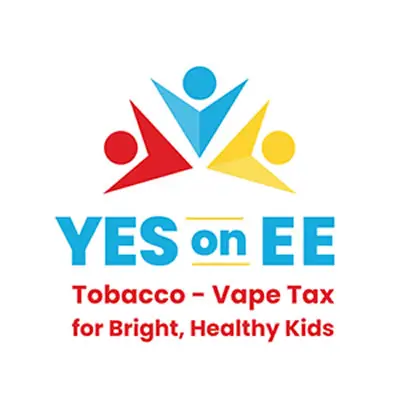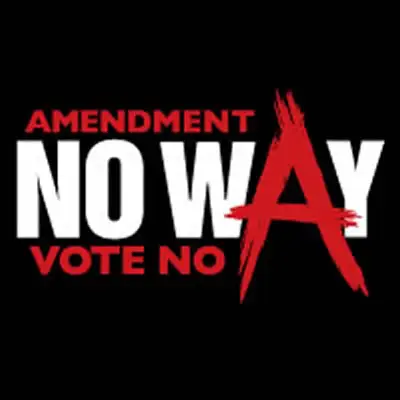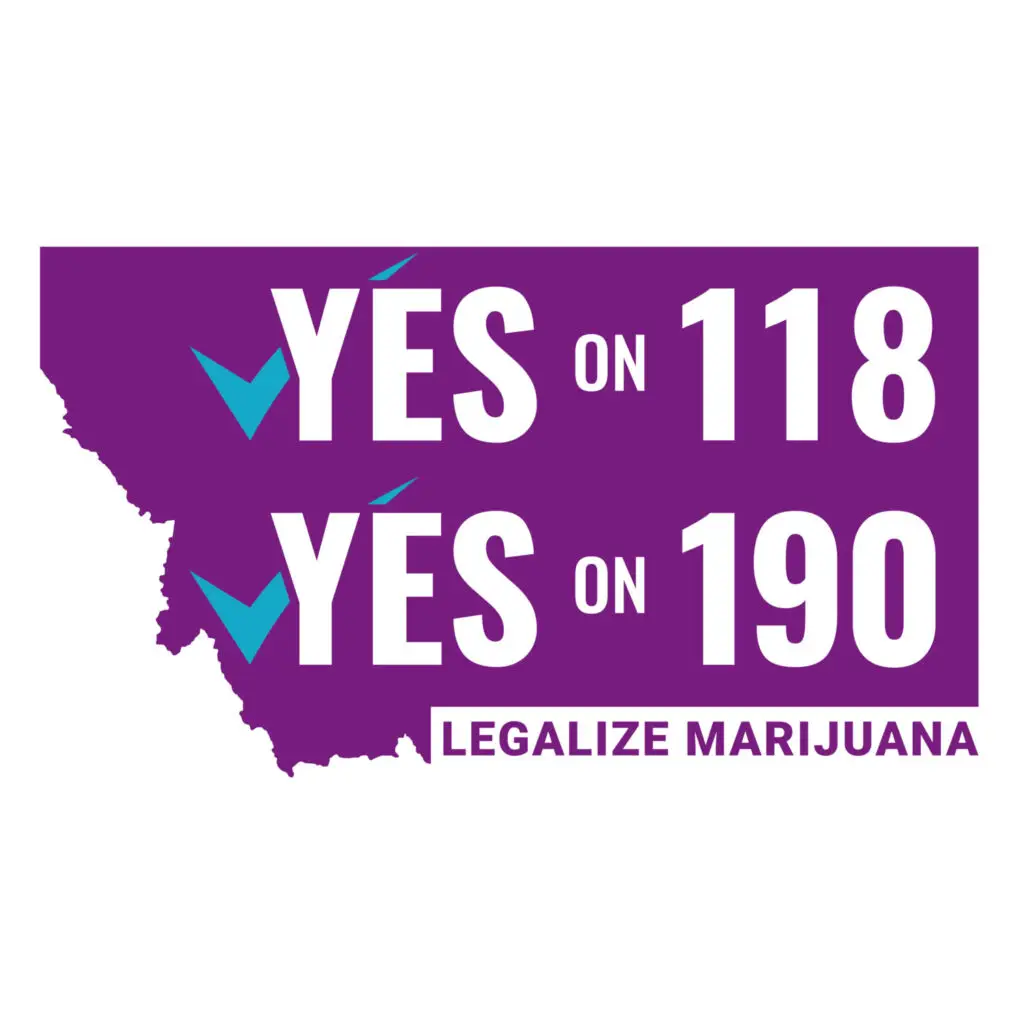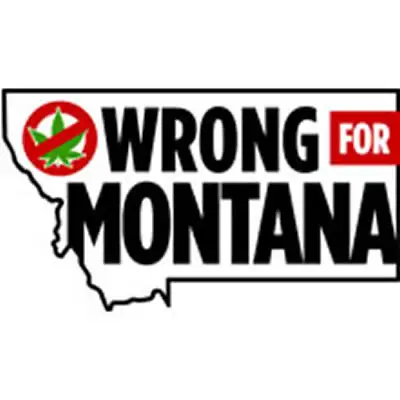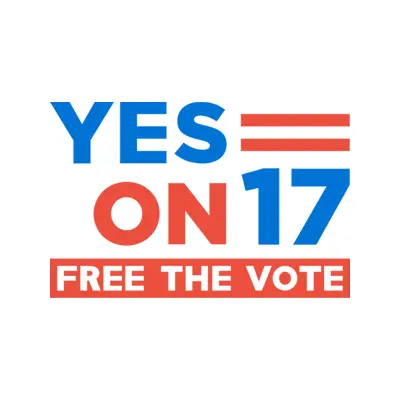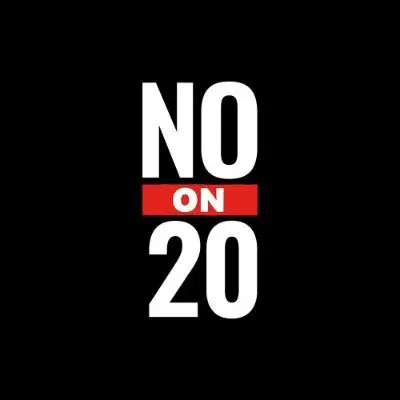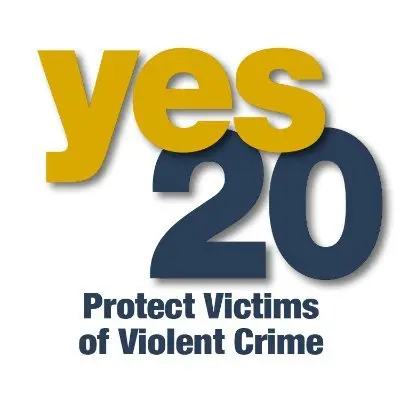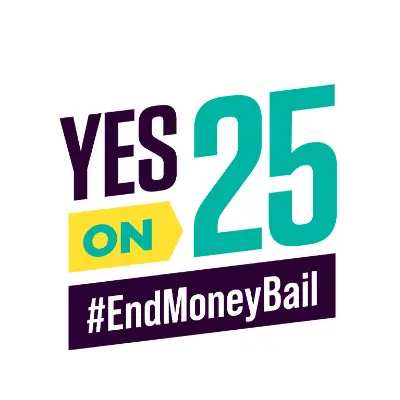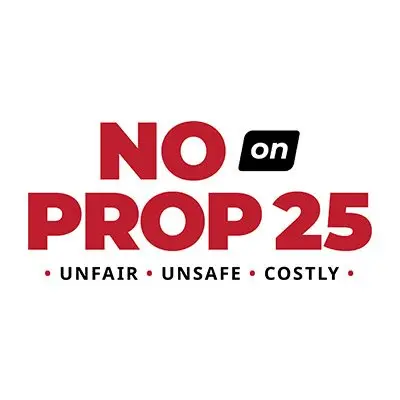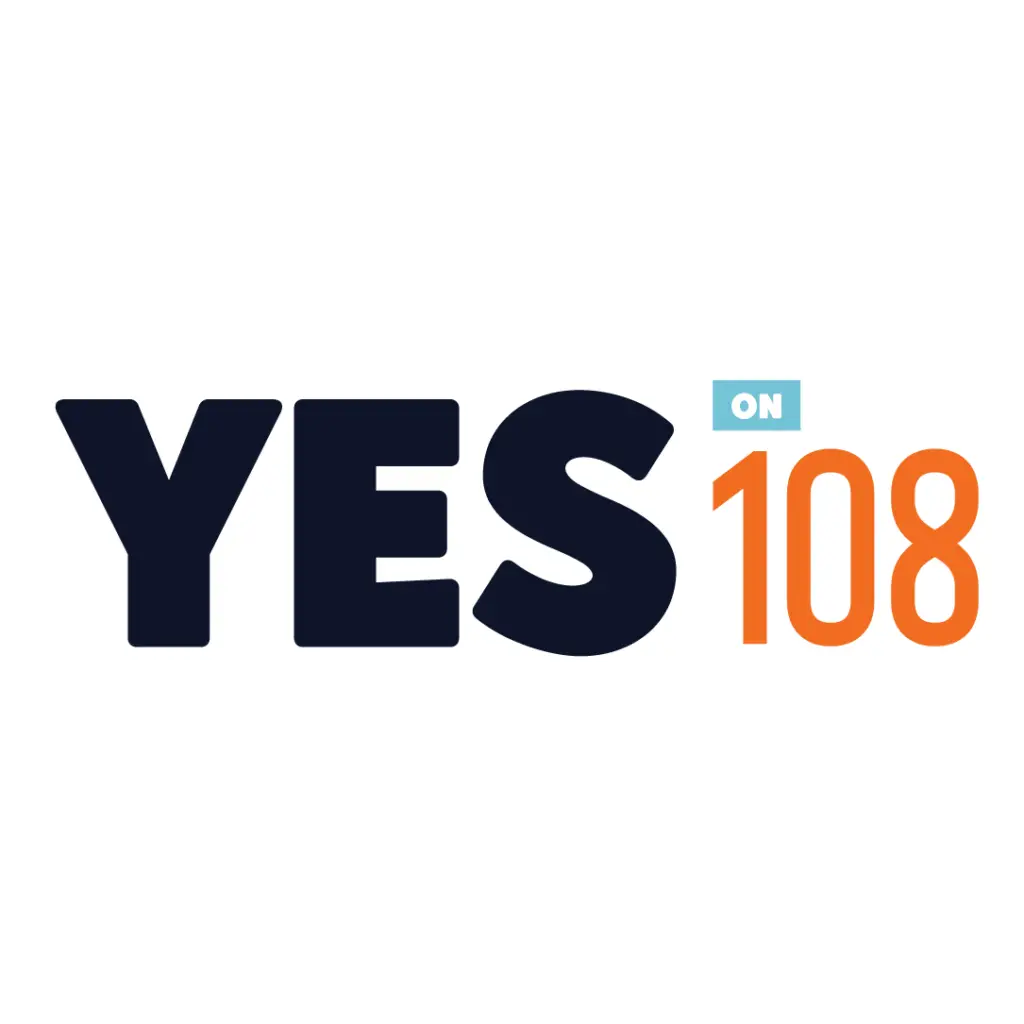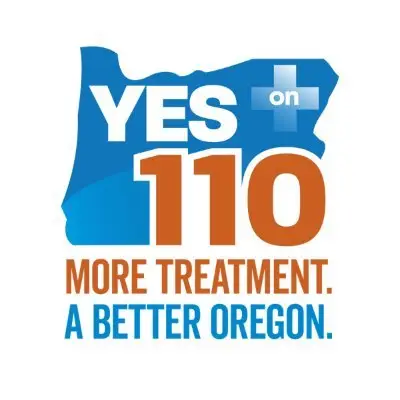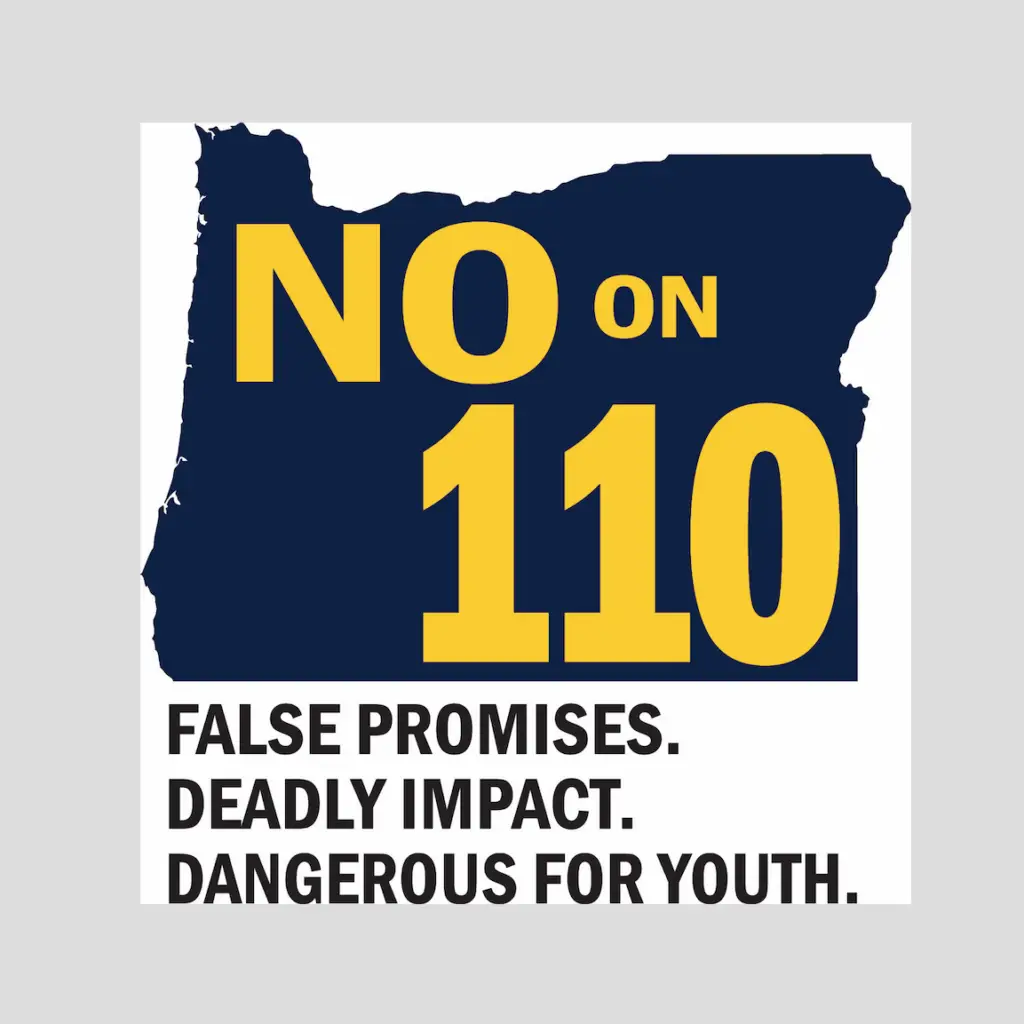Join me for Marijuana Election Night 2020. It will be my 10th anniversary election night livestream dedicated to drug policy and criminal justice initiatives nationwide. The stream starts at 4pm MT.
"Radical" Russ Tweet
It’s the tenth anniversary of my Marijuana Election Night livestream coverage of drug policy and criminal justice ballot initiatives. It’s going to be an exciting night with nine states and Washington D.C. voting on fifteen (well, technically, eighteen, thanks to legislative shenanigans and constitutional considerations) issues important to me. Click any green heading for Ballotpedia’s page on the issue and click supporters’ and opponents’ logos for their pages on the issue. I want you to be informed. Don’t take my word on it, don’t take their words on it — look shit up! No matter how you choose to vote, I hope you choose to vote. — “Radical” Russ
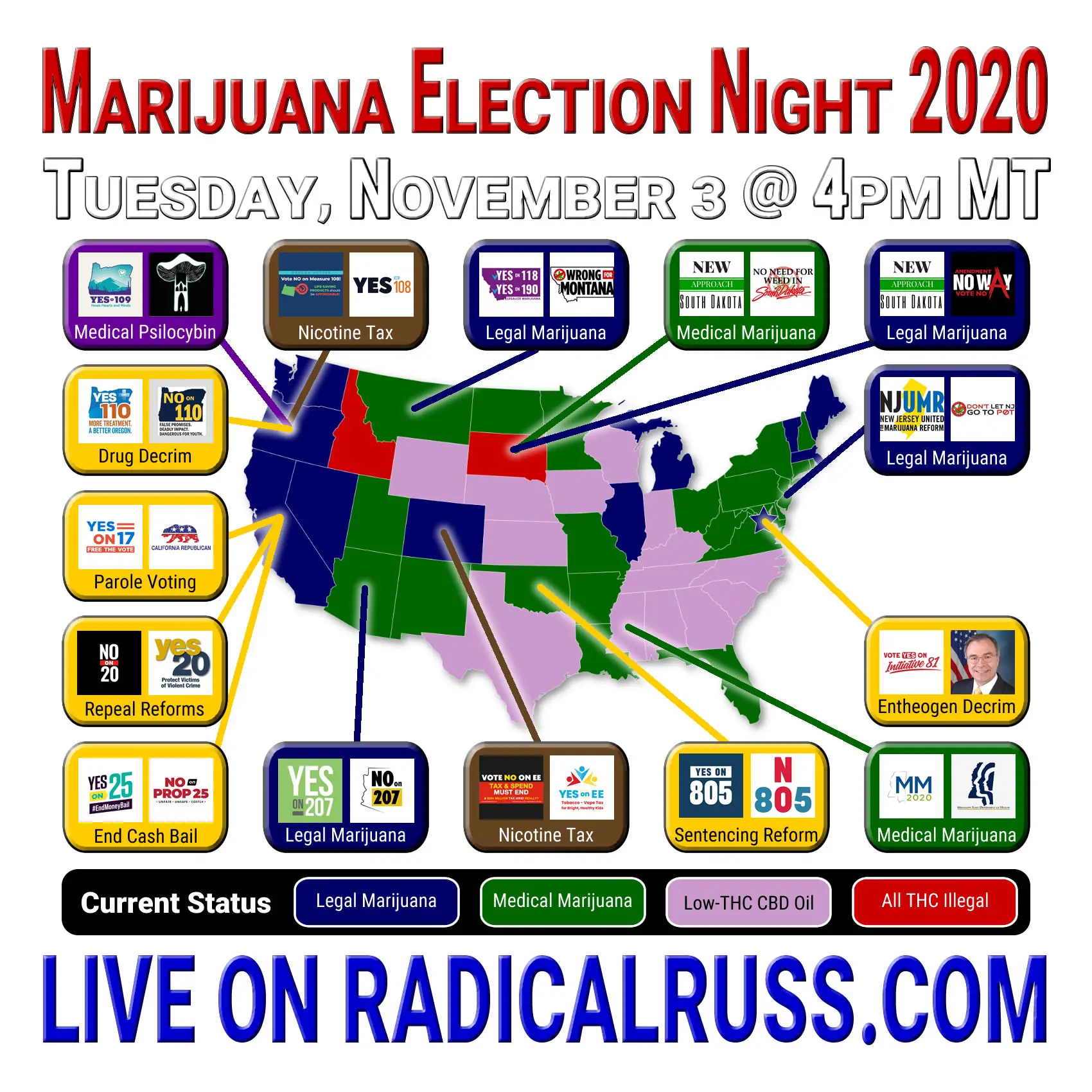
Our schedule and the initiatives we will be following, in order of poll closing, are:
4pm Mountain — Election Preview
From 4pm–6pm I’ll be playing interviews pre-recorded with leaders of some of the state initiative campaigns. I’ll also be playing some of the campaign ads, both for and against, and offering my analysis and commentary.
6pm Mountain — Washington D.C., Mississippi, New Jersey, & Oklahoma
“Patients with advanced-stage cancer suffering from treatment resistant anxiety and/or depression experienced significant reductions in both anxiety and depression with improvements of mood following a single guided psilocybin treatment, with no safety concerns or clinically significant adverse events. Other studies demonstrate efficacy of other psychedelic agents to relieve anxiety and stress disorders related to end of life. Therapy with psilocybin is well tolerated by seriously ill patients and, for some, remarkably effective in alleviating non-physical distress. Therapeutic benefits often persist long after any pharmacologic effect of the drug. It is time to support the legitimate therapeutic use of psychedelics.”
“This is a bald-faced attempt to just make these very serious, very potent, very dangerous — both short term and long term — hallucinogenic drugs broadly available. Public health has to be maintained. We know of course, once you make it a very low enforcement level and encourage prosecutors not to prosecute it, what would prevent people from using hallucinogens, getting behind the wheel of a car and killing people?”
Washington, D.C., Initiative 81, the Entheogenic Plants and Fungus Measure, is on the ballot in Washington, D.C., as an initiative on November 3, 2020.
|
A “yes” vote supports this ballot initiative to: * declare that police shall treat the non-commercial cultivation, distribution, possession, and use of entheogenic plants and fungi among the lowest law enforcement priorities and *define entheogenic plants and fungi as species of plants and fungi that contain ibogaine, dimethyltryptamine, mescaline, psilocybin, or psilocyn. |
|
A “no” vote opposes this ballot initiative to declare that police shall treat the non-commercial cultivation, distribution, possession, and use of entheogenic plants and fungi—including psilocybin mushrooms, peyote, and iboga—as among the lowest law enforcement priorities. |
Decriminalization of ibogaine, DMT, mescaline, and mushrooms? Well, of course I support that! It is the height of man’s arrogance to presume the authority to declare nature illegal. Besides, enjoying the National Mall on psychedelics could be very enlightening. Vote “yes” on Initiative 81.
“Medical marijuana is a safe and effective treatment option for a broad range of serious medical conditions and their symptoms, such as chronic pain. More than 2.8 million Americans are using medical marijuana in 34 states, and there is no reason to deny that same option for relief to Mississippians who are in chronic pain or suffer from other symptoms from debilitating medical conditions.”
“The Mississippi State Board of Health is not supportive of the legalization of [Initiative 65]. It is not FDA approved, it is illegal, and has not undergone a rigorous medical review. Currently, there are no statutes on the book, so we are watching the events as they unfold.”
Mississippi Ballot Measure 1, (Initiative 65 and Alternative 65A) two versions of a medical marijuana amendment, are on the ballot in Mississippi on November 3, 2020. Initiative 65 was an indirect initiated constitutional amendment and Alternative 65 was referred to the ballot alongside Initiative 65 as an alternative measure by the state legislature.
|
Voting “either measure” signifies that the voter wants either Initiative 65 or Alternative 65A to pass, thereby allowing the use of medical marijuana by qualified patients. The voter must then proceed to the second question to choose their preferred version. |
|
Voting “neither measure” (against both) signifies that the voter wants neither Initiative 65 nor Alternative 65A to pass. The voter can then proceed to the second question to choose their preferred version in the event the “either” option gets more votes. |
Voters then choose between Initiative 65 or Alternative 65A, regardless of their answer to the first question. Voters who choose “either” in the first question must answer the second question for their ballots to be valid. Voters who answer “neither” can but do not need to answer the second question for their ballots to be counted.
| Voting for Initiative 65 supports approving the medical marijuana amendment as provided by Initiative 65, which would allow medical marijuana treatment for more than 20 specified qualifying conditions, allow individuals to possess up to 2.5 ounces of marijuana at one time, and tax marijuana sales at the current state sales tax rate of 7%. |
| Voting for Alternative 65A supports approving the legislature’s alternative medical marijuana amendment, which would restrict smoking marijuana to terminally ill patients; require pharmaceutical-grade marijuana products and treatment oversight by licensed physicians, nurses, and pharmacists; and leave tax rates, possession limits, and certain other details to be set by the legislature. |
If there are more votes for “either” than for “neither” in the first question, the version that receives majority approval in the second question is enacted, provided it receives approval from at least 40% of the ballots cast at the election.
The Mississippi Legislature didn’t believe people could get medical marijuana on the ballot. Once they did, they crafted a competing initiative that would produce a stillborn medical marijuana program that would help virtually nobody. To further complicate the situation, they also placed Measure 1 on the ballot, so that medical marijuana has to get a “yes” vote there and get more votes on Initiatve 65 than Initiative 65A. Needless to say, Mississippians, vote “yes” on both!
“Regulation of a legalized market and industry will allow for stringent quality control and best practices, better ensuring a safer product than an unregulated market. It would also limit the ability of those underage from obtaining marijuana designed for adult use. All of this would promote public health and safety.”
“The detrimental effect recreational marijuana will have in the Garden State is undeniable. Study after study shows legalizing pot will put the public safety of New Jerseyans at risk. If our legislators continue to support this measure, they are ignoring the historical trends of harmful youth usage and the extensive negative effect legalized marijuana has had on communities of color.”
New Jersey Public Question 1, the Marijuana Legalization Amendment, is on the ballot in New Jersey as a legislatively referred constitutional amendment on November 3, 2020.
|
A “yes” vote supports this constitutional amendment to legalize the possession and use of marijuana for persons age 21 and older and legalize the cultivation, processing, and sale of retail marijuana. |
|
A “no” vote opposes this constitutional amendment to legalize the possession and use of marijuana and the cultivation, processing, and sale of retail marijuana in New Jersey. |
I’m disappointed the initiative does not expressly protect the right to home grow, instead leaving it to a legislature that will be heavily lobbied by law enforcement to deny home grow. Still, I couldn’t vote against ending my own criminality, New Jerseyans, and neither should you.
Oklahoma State Question 805 — Criminal History in Sentencing and Sentence Modification Initiative
“Oklahoma has an incarceration crisis. This crisis separates families, damages communities and hurts our state’s chances of success. For several years, legislators have tried to pass legislation that would rein in sentence enhancements and reduce extreme sentences. These efforts have failed despite widespread support from state leaders and Oklahoma voters. This campaign is a continuation of recent criminal justice reform efforts, acknowledging that much more still needs to be done to address this crisis.”
“This constitutional amendment is the ultimate gift to the career criminal and the insect crime wave of the lifetime repeat offender. … A person’s selfish and destructive long life of crime will be handled as one first offense after another. The fifteenth offense is the first offense as far as punishment goes.”
Oklahoma State Question 805, the Criminal History in Sentencing and Sentence Modification Initiative, is on the ballot in Oklahoma as an initiated constitutional amendment on November 3, 2020.
|
A “yes” vote supports:
|
|
A “no” vote opposes the amendment, thereby maintaining that a person convicted of a non-violent felony can receive greater (enhanced) sentences based on past felony convictions. |
We have a mass incarceration crisis in this country. Voting “yes” on SQ 805 will help reduce that problem by restricting the use of a person’s past record to punish them more harshly — like a patient with a weed record before medical marijuana was legalized having that used against them in another case.
7pm Mountain — Arizona, Colorado, & South Dakota
“It does the right thing by providing an option for folks who were previously convicted of low-level marijuana charges to have their criminal records sealed so they have fair access to jobs and housing. It frees up police to focus on real crime and hard drugs and unclogs the justice system which is currently backlogged with minor offenses.”
“I think there’s a lot here to worry about. If you have a vote that says it’s OK to use it, I think those kids who might be on the fence might are more likely to say ‘The voters say it’s a good think to have, it can’t be bad for us.’ I think it makes more legitimate in the eyes of a teenager.”
Arizona Proposition 207, the Marijuana Legalization Initiative, is on the ballot in Arizona as an initiated state statute on November 3, 2020.
|
A “yes” vote supports this ballot initiative to legalize the possession and use of marijuana for persons who are at least 21 years old, enact a tax on marijuana sales, and require the state Department of Health and Human Services to develop rules to regulate marijuana businesses. |
|
A “no” vote opposes this ballot initiative, thus keeping the recreational possession and use of marijuana illegal under state law in Arizona. |
The tax of 16% is pretty high, but not as high as some states (cough Washington cough). There’s home grow and expungement processes for prior marijuana offenses. As legalization intiatives go, Arizonans, this is a good one to vote “yes” for.
Colorado Proposition EE — Tobacco and E-Cigarette Tax Increase for Health and Education Programs Measure
“Taxes on traditional cigarettes are intended to discourage use. But, e-cigarettes and other smoke-free tobacco products are estimated to be 98 – 99% less harmful than smoking. Discouraging use of these low-risk products is counter to the goals of reducing smoking rates. Sin taxes are regressive. People who smoke and those who switch to vaping and other smoke-free alternatives are disproportionately poor and low income people. Sin taxes place unnecessary burdens on an already financially challenged group. To make matters worse, people in the low-income bracket are less likely to be insured and lack access to health care providers.”
“This bill will offer additional preschool programming to children from families with low incomes and to children at-risk of entering kindergarten with low levels of school readiness. This will allow targeted resources to children who benefit most from high-quality early childhood education. … the measure would also have substantial impact on Colorado’s highest in the nation rate of youth vaping by putting the price of vaping and tobacco products out of reach. In Colorado, 5,100 people die each year from smoking, and 91,000 kids under 18 right now will eventually die from smoking. Colorado also has the nation’s highest rate of nicotine vaping among youth, with over 27% of high school students using e-cigarettes.”
Colorado Proposition EE, the Tobacco and E-Cigarette Tax Increase for Health and Education Programs Measure, is on the ballot in Colorado as a legislatively referred state statute on November 3, 2020.
|
A “yes” vote supports creating a tax on nicotine products such as e-cigarettes, increasing cigarette and tobacco taxes, and dedicating revenues to various health and education programs. |
|
A “no” vote opposes creating a tax on nicotine products such as e-cigarettes, increasing cigarette and tobacco taxes, and dedicating revenues to various health and education programs. |
I’m all for taxing substances relative to the cost of ameliorating the harm they cause to society, and there’s no doubt smoking causes a lot of harm. But if we want less smoking, we should encourage more vaping — if someone’s hooked on nicotine, let’s incentivize getting them to a safer alternative. I’d vote “no” on Prop EE, Coloradoans.
“Our mission is to reform South Dakota’s harmful and outdated marijuana policies. We believe arresting adults for something objectively safer than alcohol is a wasteful and unjust use of public resources. We also believe patients deserve safe, legal access to medical marijuana.”
“I do foresee South Dakota voters taking a perfect hard look at it. And a lot of them voting with their heart. Because we’re a compassionate state and we understand that taking care of each other is what is important. And giving these patients that option is probably going to happen. And I think it’s a great thing for everyone.”
South Dakota Chamber of Commerce and Industry said, “While Amendment A says businesses can refuse to hire people that fail a drug test now, the States of New York and Nevada have recently passed laws that prohibit that very activity; meaning businesses can no longer use a failed drug test as a reason to not hire an applicant.” A board member of the South Dakota Chamber of Commerce and Industry said, “We can’t find anyone that can pass a drug test now; you make pot legal and we won’t have a workforce.”
“South Dakota State Medical Association urges a “no” vote and maintains that marijuana is a hazardous drug and a public health concern. The use of non-FDA approved marijuana for medical purposes carries serious safety risks by circumventing FDA processes.”
South Dakota Constitutional Amendment A, the Marijuana Legalization Initiative, is on the ballot in South Dakota as an initiated constitutional amendment on November 3, 2020.
|
A “yes” vote supports the constitutional amendment to legalize the recreational use of marijuana and require the South Dakota State Legislature to pass laws providing for the use of medical marijuana and the sale of hemp by April 1, 2022. |
|
A “no” vote opposes legalizing marijuana for recreational use and requiring the state legislature to pass laws providing for the use of medical marijuana and the sale of hemp. |
South Dakota Initiated Measure 26, the Medical Marijuana Initiative, is on the ballot in South Dakota as an initiated state statute on November 3, 2020.
|
A “yes” vote supports establishing a medical marijuana program in South Dakota for individuals with a debilitating medical condition. |
|
A “no” vote opposes establishing a medical marijuana program in South Dakota for individuals with a debilitating medical condition. |
It would be historic to see a state go from absolute prohibition to a constitutional right to marijuana. It would be incredible if that state was South Dakota. I urge all South Dakotans to vote “yes” on both and put the pressure on the rest of America (cough Idaho cough) to end cruel and unjust marijuana prohibition.
8pm Mountain — Montana
“Our research has always shown that a majority of Montanans support legalization, and now voters will have the opportunity to enact that policy, which will create jobs and generate new revenue for our state. It also means that law enforcement will stop wasting time and resources arresting adults for personal marijuana possession, and instead focus on real crime.”
“All you have to do is go to Colorado for a test site. They’ve been up and running now for eight years, and if you look at the traffic accidents, you look at the emergency room, you look at the vagrants, you look at the activity in the black market as well as the regular market down there, it has just exploded.”
The Montana CI-118, the Allow for a Legal Age for Marijuana Amendment, is on the ballot in Montana as an initiated constitutional amendment on November 3, 2020.[1][2]
|
A “yes” vote supports amending the Montana Constitution to allow for the legislature or a citizen initiative to establish a minimum legal age for the possession, use, and purchase of marijuana, similar to the regulation of alcohol in the state constitution. |
|
A “no” vote opposes amending the Montana Constitution to allow for the legislature or a citizen initiative to establish minimum legal ages for the possession, use, and purchase of marijuana. |
Montana I-190, the Marijuana Legalization Initiative, is on the ballot in Montana as an initiated state statute on November 3, 2020.[1][2]
|
A “yes” vote supports legalizing the possession and use of marijuana for adults over the age of 21, imposing a 20% tax on marijuana sales, requiring the Department of Revenue to develop rules to regulate marijuana businesses, and allowing for the resentencing or expungement of marijuana-related crimes. |
|
A “no” vote opposes this ballot initiative, thus keeping the recreational possession and use of marijuana illegal under state law in Montana. |
Here’s another confusing set of double-votes to accomplish a single initiative. Initiative 190 would legalize marijuana for adults 21 and older. But it can’t do that unless Constitutional Initiative 118 passes, granting citizens the power to set a minimum age for legal marijuana. Vote for them both, Montanans.
9pm Mountain — California, Oregon
“California is one of only a handful of states that denies the right to vote to people on parole but allows people on probation to vote. Few people, including election administrators, understand the difference between probation and parole. And as Californians know, those distinctions are becoming increasingly opaque and confusing as new forms of supervision get created. The result is that eligible voters think that they cannot or refrain from voting out of fear that they may be breaking the law, a phenomenon we call ‘de facto disenfranchisement.’
“[Proposition 17] seeks to restore voting rights, the most fundamental and valuable of American privileges, to those who have not completed making full restitution for their crimes. While on parole, a former criminal’s liberties, such as movement, association, activities and even ownership of certain items are still heavily restricted and regularly monitored by the system. Any misstep results in immediate re-incarceration. In other words, an individual on parole has not regained the full trust of the society at large, nor the privilege to participate as a full member of that society.”
California Proposition 17, the Voting Rights Restoration for Persons on Parole Amendment, is on the ballot in California as a legislatively referred constitutional amendment on November 3, 2020.
|
A “yes” vote supports this constitutional amendment to allow people on parole for felony convictions to vote. |
|
A “no” vote opposes this constitutional amendment, thereby continuing to prohibit people who are on parole for felony convictions from voting. |
As far as I’m concerned, every state should be like Maine and Vermont and never take away a person’s voting franchise. Given that our (in)justice system is imperfect, there will be innocent people locked up. If they lose their right to vote, we’ve removed the one power an innocent person has for redressing their grievances with government. And if your fear is that 2.3 million incarcerated people with the right to vote might outvote the public for laws that leave fewer of them incarcerated, perhaps we’re incarcerating too many people? Californians, vote “yes” on Prop 17.
“It’s a prison spending scam at a time when we are actively closing prisons and reallocating funds toward what’s needed in communities. They would like us to believe that California is in dire straits in order to reverse many of the reforms we have put in place since 2012. … We urge the proponents of this new effort to reject the Trump Administration’s return to the failed 1990’s era of harsh sentencing and mass incarceration, as the voters of this state have consistently done, and instead work toward keeping California’s crime rates the lowest in history.”
“When Californians voted on Proposition 57 in 2016, they were promised that it would apply only to “nonviolent” offenders, but that word does not mean what they thought it meant. Most of us think that nonviolent offenders have committed low-level crimes, like personal drug use, petty theft or getting drunk in public. California voters are shocked to discover that human trafficking and domestic violence are on this list. As a victim’s advocate, who works directly with victims of these and other horrific crimes, I can’t express to you how dangerous and damaging this current classification is, and how vital it is to pass Proposition 20 to change it.”
California Proposition 20, the Criminal Sentencing, Parole, and DNA Collection Initiative, is on the ballot in California as an initiated state statute on November 3, 2020.
|
A “yes” vote supports this initiative to add crimes to the list of violent felonies for which early parole is restricted; recategorize certain types of theft and fraud crimes as wobblers (chargeable as misdemeanors or felonies); and require DNA collection for certain misdemeanors. |
|
A “no” vote opposes this initiative to add crimes to the list of violent felonies for which early parole is restricted; recategorize certain types of theft and fraud crimes as wobblers (chargeable as misdemeanors or felonies); and require DNA collection for certain misdemeanors. |
Californians have been passing numerous criminal justice reforms in order to address mass incarceration. This Prop 20 would undo much of that progress by empowering prosecutors to upgrade non-violent misdemeanors to felonies for the purposes of tougher penalties and DNA collection. Californians, I urge you to reject this latest push from the prison-industrial complex to save their profits.
“There are countless examples of how unfair, and unsafe, this system is. Take Kenneth Humphrey, a Black senior citizen from San Francisco. He was accused of stealing $5 and a bottle of cologne, burglary and elder abuse. Unable to pay his way out, he was forced to wait in jail for almost an entire year before his court date. On any given day in California there are nearly 50,000 people just like Kenneth Humphrey – at risk of losing their jobs or their homes as they languish in jail. Meanwhile, Brock Turner was charged and convicted on multiple counts of sexual assault – a violent felony. Despite the severity of his charges, his bail was set at just $150,000. Turner, now a registered sex offender, paid his bail and was immediately released back into the community as he awaited trial.”
“The biggest flaw in SB 10 is the use of computer programs to make important justice decisions. These are the same type of algorithms that Big Data companies use to bombard us with ads every day. While I might appreciate an algorithm recommending books or television shows, I have long been against their use in making determinations over insurance rates, and whether or not someone gets a home loan or credit card. The use of algorithms has been proven to discriminate against the poor, minorities and people who live in certain neighborhoods. Relying on algorithms to make important criminal justice decisions is even more appalling.”
California Proposition 25, the Replace Cash Bail with Risk Assessments Referendum, is on the ballot in California as a veto referendum on November 3, 2020.[1]
|
A “yes” vote is to uphold the contested legislation, Senate Bill 10 (SB 10), which would replace cash bail with risk assessments for detained suspects awaiting trials. |
|
A “no” vote is to repeal the contested legislation, Senate Bill 10 (SB 10), thus keeping in place the use of cash bail for detained suspects awaiting trials. |
The arguments against Prop 25 remind me a bit of the arguments prohibitionists are using against legalization, namely the old “the fix you’re proposing won’t cure racism.” Yes, it might be problematic if algorithms are biased against people of color, but how is that a worse bias than the cash bail that disproportionately affects them now? Remember, everybody in need of posting bail is innocent until proven guilty, so why should only rich innocent people be freed awaiting arraignment or trial? Californians, vote “yes” on Prop 25.
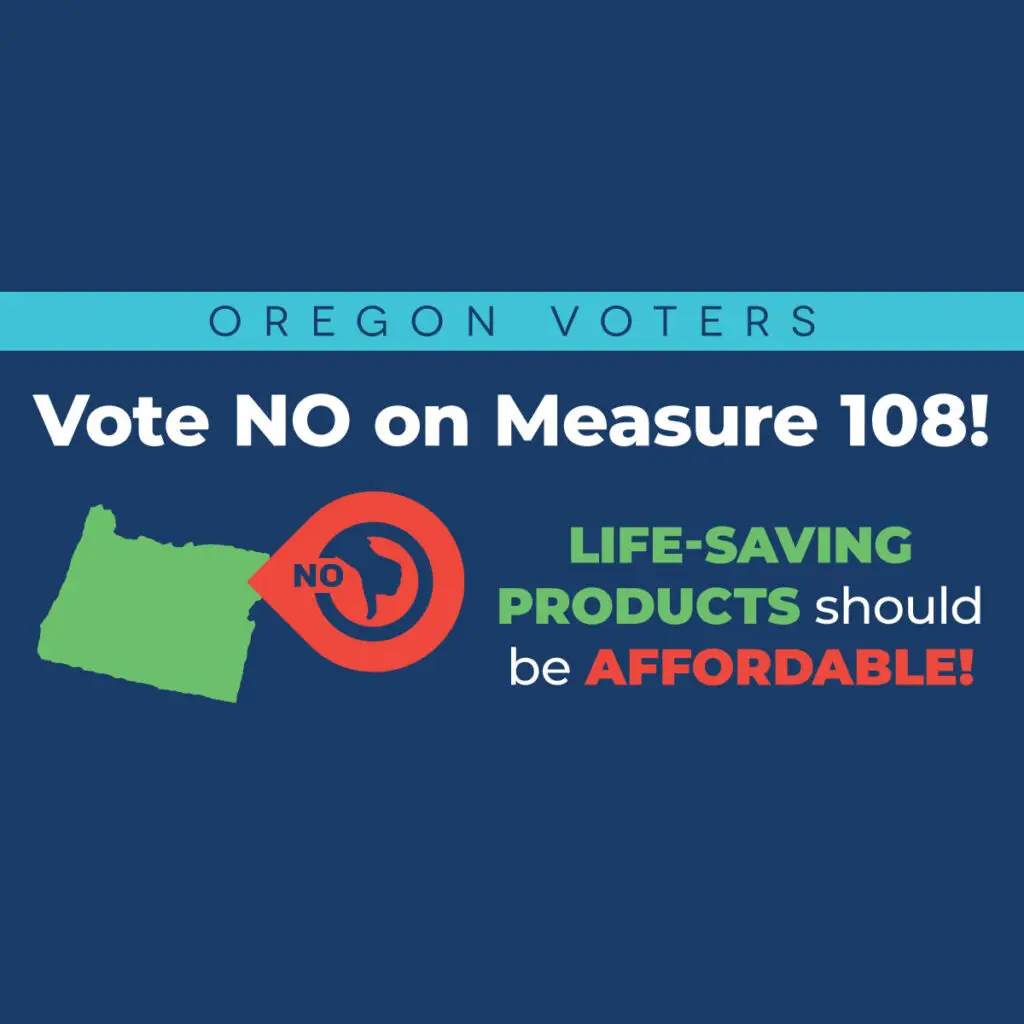
“Measure 108 increases Oregon’s cigarette excise tax from $1.33 to $3.33 per pack (a more than 150% increase), taxes e-cigarettes and other nicotine vaping products at a rate of 65% of the wholesale price, and raises the tax cap for cigars. The cigarette excise tax hike alone is estimated to raise $160 million annually, according to the Legislative Revenue Office.”
“There is broad support for Measure 108 from Oregon’s hospitals because it will improve community health in some important ways. The revenue raised will fund smoking cessation programs and address vaping, which is surging in popularity with kids. It will also help keep a solid financial foundation for Medicaid, which is more important than ever in the COVID era.”
Oregon Measure 108, the Tobacco and E-Cigarette Tax Increase for Health Programs Measure, is on the ballot in Oregon as a legislatively referred state statute on November 3, 2020.
|
A “yes” vote supports the measure to increase taxes on tobacco products and inhalant delivery systems (such as e-cigarettes) to fund the state’s Medical Assistance Program and other healthcare-related programs. |
|
A “no” vote opposes the measure to increase taxes on tobacco products and inhalant delivery systems (such as e-cigarettes) to fund the state’s Medical Assistance Program and other healthcare-related programs. |
I instinctively recoil from ballot measures that purport to be saving the children from some evil. This measure is no different. Taxing vapes at 65% of wholesale cost is sure to make them cost more than cigarettes (a $30 retail vape probably costs $15 wholesale, so M108 would add a ten dollar tax!), so anybody, teen or adult, who is addicted to nicotine will be incentivized to choose the more harmful product. And I live on the Oregon/Idaho border, where a drive across the Snake River Bridge will lead a steady stream of Eastern Oregon smokers into Idaho, where the aggregate (sin + sales) taxes on a pack of smokes will be $0.87. I guess that would make up for the steady stream of Western Idahoans flocking to Oregon for their legal weed. Still, I urge Oregonians to vote “no” on 108, before they start raising the already-too-high taxes on other things adults smoke.
“A growing body of evidence demonstrates that psilocybin-assisted therapy is safe and uniquely effective. We think that this novel approach could help alleviate the mental health crisis here in Oregon by addressing costly epidemics like suicide, treatment-resistant depression and anxiety, PTSD, and addiction to drugs, alcohol, and nicotine. Additionally, the measure would open doors for new research, create access to services for those interested in personal development, and reduce penalties for common possession of psilocybin.”
“As medical experts in psychiatric care, we are concerned about determining medical treatment by ballot initiative. Such treatment should be evidence-based and determined solely by professional standards of care. Science does not yet indicate that psilocybin is a safe medical treatment for mental health conditions. While the FDA has granted psilocybin breakthrough therapy status, this does not establish the safety and efficacy of this treatment, it merely establishes the process by which to further study the treatment.”
Oregon Measure 109, the Psilocybin Program Initiative is on the ballot in Oregon as an initiated state statute on November 3, 2020.
|
A “yes” vote supports authorizing the Oregon Health Authority (OHA) to create a program to permit licensed service providers to administer psilocybin-producing mushroom and fungi products to individuals 21 years of age or older. |
|
A “no” vote opposes the creation of a psilocybin program, thus maintaining the state prohibition against the possession, manufacturing, and consumption of psilocybin. |
While I would prefer a “medical mushrooms” program that allowed patients to cultivate and use psilocybin mushrooms at home, this clinically-restricted measure still would be a national breakthrough in psychedelic medicine, and I implore all Oregonians to vote “yes” on 109.
Oregon Measure 110 — Drug Decriminalization and Addiction Treatment Initiative
“Oregonians have always been early adopters of drug policies that shift the emphasis towards health and away from punishment. The idea behind this groundbreaking effort is simple: people suffering from addiction need help, not criminal punishments. Instead of arresting and jailing people for using drugs, the measure would fund a range of services to help people get their lives back on track.”
“If you put them in jail, you’ve only increased the mountain they have to climb because they now are unable to gain finance, work and housing unlike people who don’t have a record.”
“Measure 110 is so poorly written it will lead to additional unnecessary deaths, further destabilize Oregon’s fractured and incomplete behavioral health system, and will reduce enrollment in treatment centers across the state. It dismantles one system of intervention before building a new system. It’s similar to the effort 40 years ago to address our growing mental health crisis by closing the outdated mental hospitals without first building the outpatient services that were needed. … Measure 110 will reduce court referrals to treatment providers which will lead to closure of addiction treatment facilities across Oregon at a time when the state already ranks virtually last in access to treatment.”
Oregon Measure 110, the Drug Decriminalization and Addiction Treatment Initiative, is on the ballot in Oregon as an initiated state statute on November 3, 2020.[1]
|
A “yes” vote supports making personal non-commercial possession of a controlled substance no more than a Class E violation (max fine of $100 fine) and establishing a drug addiction treatment and recovery program funded in part by the state’s marijuana tax revenue and state prison savings. |
|
A “no” vote opposes reclassifying personal non-commercial possession of a controlled substance from a Class A misdemeanor to a Class E violation, thereby maintaining the existing maximum penalty for a Class A misdemeanor of one year in prison and a $6,250 fine. |
Portugal did something similar to this in 2000. In the two decades since, they’ve seen drastic declines in overdoses and HIV and Hep C transmissions, without increases in crime or addiction. Regardless, in what free society should the state have the power to seize one’s liberty for acts they commit upon themselves? We’ve functioned for centuries accepting the legal use of the most dangerous drugs — alcohol and tobacco — and it’s long past time we accepted other drug use and worked to make it safer. Oregonians, vote “yes” on Measure 110.
It’s shaping up to be an exciting election night and not just for the big vote at the top of the ticket between Drug War Joe Biden and Fascist Idiot Donald Trump. At least if that choice doesn’t excite you, there are fourteen other races you can follow right here, live on RadicalRuss Radio… just click the play button below in the footer on Marijuana Election Night 2020, starting at 4pm Mountain Time.

